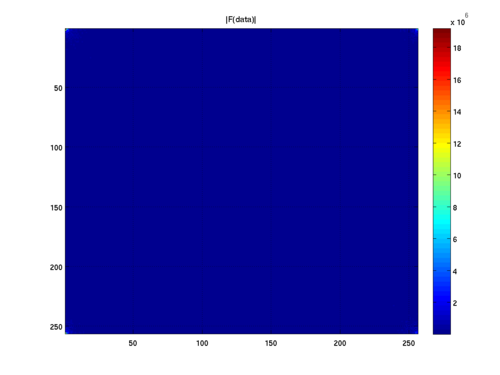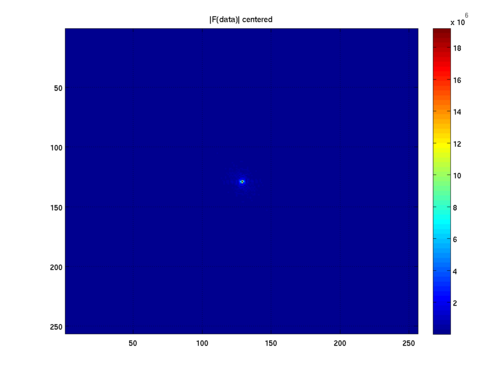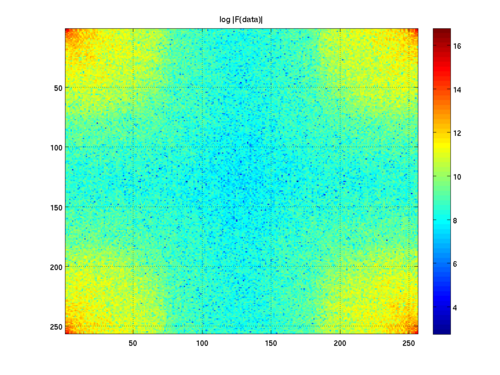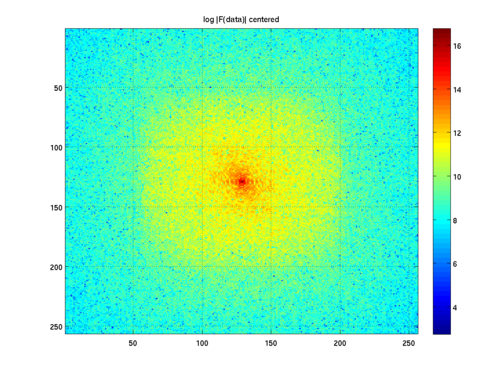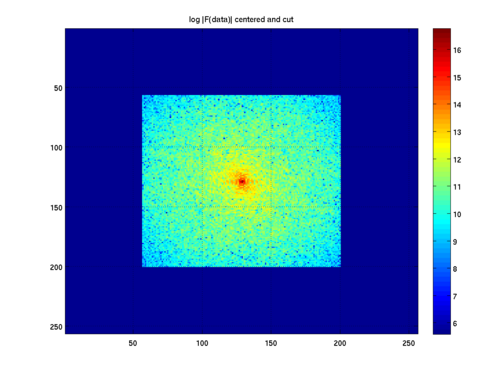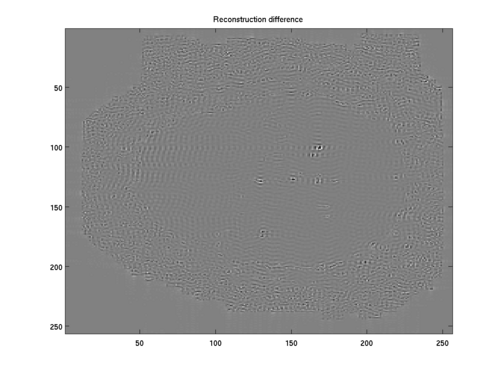Difference between revisions of "July31T-con/PlayingWithTheDiffusionData"
Niethammer (talk | contribs) (diffusion data downsampling test) |
Niethammer (talk | contribs) |
||
| Line 14: | Line 14: | ||
[[Image:logfouriermagnitude.png|500px]] | [[Image:logfouriermagnitude.png|500px]] | ||
[[Image:logfouriermagnitude-centered.png|500px]] | [[Image:logfouriermagnitude-centered.png|500px]] | ||
| + | |||
| + | Unfortunately, we don't see nice blue regions that we would have expected from ideal zero-padding. | ||
| + | Instead it looks a little "salt-and-peppery." Is this a scanner discretization effect? | ||
Cutting away everything that should ideally be zero gives this Fourier log-image: | Cutting away everything that should ideally be zero gives this Fourier log-image: | ||
Latest revision as of 15:58, 3 August 2007
Home < July31T-con < PlayingWithTheDiffusionDataExploring the Upsampling of the BWH Diffusion Data
Extracting one a slice for one of the gradient directions of the diffusion data results in an image like this:
A two-dimensional Fourier transform leads the following magnitude images (uncentered and centered):
Representing this in the log-domain results in
Unfortunately, we don't see nice blue regions that we would have expected from ideal zero-padding. Instead it looks a little "salt-and-peppery." Is this a scanner discretization effect?
Cutting away everything that should ideally be zero gives this Fourier log-image:
An inverse Fourier transform followed by discretization results in:
The result is slighly smoother than the original, which is sensible since we essentially low-pass filtered the result.
The difference between original and reconstruction is not great, but still shows a little bit of structure:
In case you want to recreate the results. Here is the matlab script dwiTstScript.m. And here is the data SampleDWIDataSlice.tar.gz.

